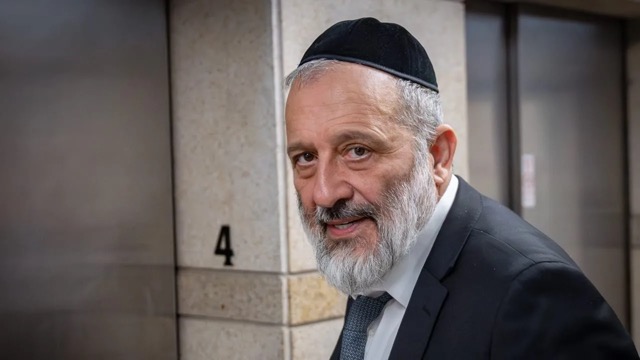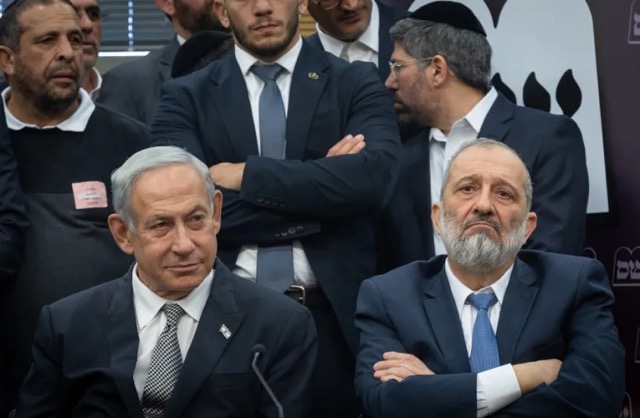Aryeh Deri, Benjamin Netanyahu (credit: Yonatan Zindel/Flash90)Only
a handful of officials, including Knesset Foreign Affairs and Defense
Committee chair Yuli Edelstein, knew the strike was scheduled for that
Thursday night, Deri added. Most coalition partners “were fighting a
real fight” over domestic politics, unaware that Israeli jets were
already preparing to take off.
October 7 was a ‘wake-up call’
Deri, who sits in the five-member war cabinet, argued that the Hamas massacre of
October 7 ultimately “saved the people of Israel” by exposing Iran’s regional design and prompting Jerusalem to act.
“On
October 7, we discovered the grand plan to destroy us,” he said. “Iran
lost all its proxies and is now exposed; they ran at full speed toward a
bomb because they no longer have their messengers.”
With Tehran “rushing toward nuclear weapons,”
Deri said the Netanyahu government judged an immediate strike to be a
strategic necessity. “The last few months were an emergency,” he said.
“We had to do it.”
Netanyahu’s deepening faith
Asked
whether the prime minister—raised in a secular home—has grown more
religious during the war, Deri replied, “Absolutely. He saw the
humiliation of October 7, but also the great kindness God has shown
since. The hard work of the army and security services is real, yet he
sees the divine hand guiding us.”
Despite
growing speculation about succession, Deri insisted Netanyahu should
“lead Israel as long as he can,” praising his “unique ability” to manage
simultaneous security, diplomatic and political crises.
Pressed
on the prime minister’s stamina, the 65-year-old Shas leader conceded
that the strain of war is “not simple,” but said he prays Netanyahu will
have the strength to finish his “many remaining tasks.”

